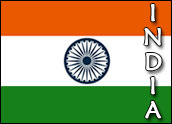
Do you plan to conduct business abroad? If yes, then you need to know how you may be seen by others. Otherwise failure can result. The globalization of supply chains and support services means that you don’t need to travel to engage in business internationally, but that lack of face-to-face interaction only makes communication that much more critical.
Why is it important that Americans understand how we are viewed abroad? Because one of the easiest ways to run into trouble is to see yourself differently than others see you.
The Pew Research Center’s Global Attitudes Project has gathered multi-year data examining attitudes towards Americans in the world’s two most populous countries, China and India. The first Global Attitudes survey was conducted in 2002. The most recent survey was completed in June 2005. Survey results in both years found that American people are viewed more favorably than the country itself. This gap is narrowing slightly, led by both an improvement in the image of the U.S. and a decline in attitudes towards Americans.
Hardworking and Honest?
Whereas people around the world often have negative views of the U.S. and Americans as a whole, they are ready to recognize some positive traits among American people. For business relations, how honest and hardworking Americans are perceived can be instrumental in Americans establishing and maintaining business relationships. We begin with those two traits.
According to Global Attitudes’ data from 2005, Americans are largely seen as hardworking in all countries, particularly in France, where 89 percent of respondents hold that view. The sole exception is China, where 44 percent of the Chinese public see Americans as hardworking and only 35 percent see us as honest.
In India, 81 percent and 58 percent of the public see Americans as hardworking and honest, respectively. In no other foreign country surveyed were Americans seen as more honest than in India. Perceptions by Indians of Americans’ honesty exceed Americans’ own opinions of themselves, in that the Pew survey found that 63 percent of the U.S. public sees Americans as basically honest.
The Indian public is more likely to see Americans as being inventive, compared to respondents elsewhere in the world, with 86 percent associating Americans with that term compared to 70 percent in China.
Negative Traits
On the subject of negative traits, Americans tend to rate themselves in the middle compared to how other nationalities see us. The one exception is greed, where the American public rates itself as more greedy than do the people of any other country surveyed. Americans are seen as greedy by 70 percent of Americans surveyed.
Overseas, 57 percent of Chinese and 43 percent of Indian respondents rate Americansas greedy. Only 31 percent of French respondents see Americans as greedy.
When it comes to rudeness, 35 percent of Americans see themselves as a rude people. Only 27 percent of Indians agree that Americans are rude compared to 44 percent of Chinese respondents.
On identifying Americans as immoral, 35 percent of respondents in the U.S. assigned that label to Americans as a whole, whereas 44 percent of Chinese placed Americans in that category and 36 percent of Indians.
Splits between Chinese and Indian respondents are repeated in regard to identifying Americans as violent. In the U.S., 49 percent of respondents see Americans as a whole as violent. Chinese respondents made this association 61 percent of the time, compared to only 39 percent of Indian respondents.
China
The Pew study’s results in China were obtained from a random sample of 2,141 respondents aged 18-60, located in urban areas largely in the east of the country. Data for the 2005 survey was gathered May 21-31, 2005.
A majority of Chinese surveyed (53 percent) report unfavorable views of the U.S. When it comes to positive traits in Americans, the Chinese hold Americans in low regard. Only 44 percent see us as hardworking, and a meager 35 percent see us as honest.
Majorities in 11 of the 16 countries included in the Pew study had favorable opinions of China. This compares to only 6 countries with majorities favorable to the U.S. Worldwide, the U.S. was the lowest ranked country out of the five major leading nations ranked: United States, Germany, China, Japan and France.
Satisfaction within China about the direction that country is taking leapt to 72 percent of respondents in 2005, up from 48 percent in 2002. Chinese respondents said that their country is generally liked by people in other countries 68 percent of the time.
India
In India, the Pew study surveyed 2,042 respondents between May 1 and May 29, 2005. All respondents were randomly selected from people between the ages of 18 and 65 living in urban areas. As with the data gathered in China, the survey researchers have a 95 percent confidence that their error rates based on sampling are within plus or minus two percentage points.
Positive opinions of the United States have jumped in India to 71 percent of respondents in 2005, compared to 54 percent in 2002. Positive opinions of Americans have also increased to 71 percent, from 58 percent three years ago.
Indians opinions of Americans’ qualities are high: 86 percent of Indians surveyed labeled Americans as inventive; 81 percent find Americans hard working; and 58 percent said Americans are honest. When asked where a young person should go to live a good life, the U.S. was listed more often than any other country (38 percent).
When asked about their own country, 83 percent of Indian respondents said they believed that India was held in generally high regard around the world, with 13 percent disagreeing. Satisfaction with the way things are going in their own country rose from 9 percent in 2002 to 41 percent in 2005.
Research Anomalies
Two types of survey research anomalies can influence studies of attitudes abroad; however, these anomalies are not highlighted in the Pew study’s results.
The first anomaly is the tendency of Chinese respondents to register more ‘no opinion’ responses than Indian respondents. Indian survey respondents have a loquaciousness that makes them more likely to appear to hold strong opinions on issues on which Chinese respondents would simply demur.
The second anomaly is the ‘courtesy bias,’ which leads respondents to attempt to give the type of responses that they believe survey researchers would prefer. By alternating survey mechanisms and survey approaches, this bias can be identified, but not necessarily overcome.
The courtesy bias may have contributed to the Global Attitudes Project finding that 27 percent of Indians would agree with the assessment that Americans are rude, compared to 44 percent of Chinese respondents. Likewise with the question of identifying Americans as immoral, 36 percent of Indians made that association compared to 44 percent of Chinese respondents. Based on my experiences living in both cultures, it appears to me that the numbers regarding Chinese opinions about Americans’ rudeness and immorality are valid, whereas Indian responses are influenced by courtesy bias.
Open to Outside Information?
At InternationalStaff.net, before Americans are sent abroad to a new country, they are referred to the book Kiss, Bow and Shake Hands. Each country-specific chapter contains surprising information on doing business in other countries. However, the most surprising information for Americans could be the book’s statement about how Americans organize and process information:
- “In the United States, the culture is very ethnocentric, and so is closed to most outside information. It is very analytical, and concepts are abstracted quickly. Innovation often takes precedence over tradition. The universal rule is preferred, and company policy is followed regardless of who is doing the negotiating.”
In business, openness to outside information can be a critical variable for success. Americans are not the only people for whom openness to outside information is an issue. An example of how we can learn about ourselves through the study of others may be found in the book’s statement about cognitive styles in Denmark:
- “The Danes are a proud people who tend to be satisfied with their own accomplishments and thus do not need (and are not open to) information or help from others. Their education is moving away from rote learning and toward the application of abstractive, conceptual thinking. They tend to follow universalistic rules of behavior rather than react to particular situations.”
Minimizing Business Risk
American businesspeople need to know how to build on the image of being hardworking and how to compensate for being seen as dishonest.
In South Asian countries, where Americans are largely seen as honest, these impressions may derive in part from a view of respondents’ own societies as having widespread problems with corruption.
The fact that Americans may be viewed as honest may make us attractive business partners, but it does not follow that Americans will be afforded corresponding levels of honesty in return. In my experience, there is a widespread view in India that Americans are rich, dumb and happy — and that it is therefore justified that we be cheated and overcharged. A trustworthy local presence is the best defense, even if it is an informal presence.
In both India and China, the safest types of business interactions are often with individuals and firms who have an established, verifiable track record of working successfully with Western companies. The least safe interactions are often those that involve or rely heavily on the public sector. High levels of business risk in India can also be encountered in transactions with firms based largely in gems, construction and brewing — where there are often large amounts of undeclared ‘black’ money.
Americans working overseas also need to know whether business proposals they receive are ethical and legal. In addition, a sound understanding of local tax systems is needed, particularly in countries where taxes are assessed unevenly, targeting foreigners, and new tax liabilities can be assessed retroactively, as in India.
Anthony Mitchell , an E-Commerce Times columnist, has beeninvolved with the Indian IT industry since 1987, specializing through InternationalStaff.net in offshore process migration, call center program management, turnkey software development and help desk management.


















































Social Media
See all Social Media